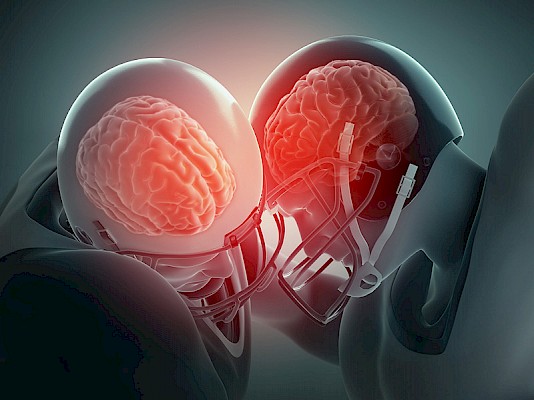The Lowdown on Concussions: Symptoms, Causes, Treatment

Over the previous decade, concussions, especially in professional sports, have become more prominent than ever. Still, this injury may occur when participating in any activity, not only in sports.
Concussions are also tricky. As the professional attorneys from Diamond and Diamond say, these vary from one patient to the next. In the wake of such an accident, you need to worry about many things – care, symptom prevention, and, at times, compensation.
When you suspect that you or a loved one has suffered a concussion, the first step is to seek medical attention. However, it’s a challenge to avoid panic when it happens.
So, today, we bring you a quick guide on concussions. If you’re informed on how the injury tends to play out, you’ll be more prepared if it occurs.
Contents
Signs & Symptoms
As we mentioned, concussions are a tricky injury. Even trained healthcare experts may have a hard time diagnosing one due to the varying symptoms. Plus, in most cases, they don’t show on CTs and MRIs, so doctors rely on the expertise and objective tools to help them.
Symptoms
The symptoms you experience after a concussion can vary drastically. Some will show up soon after the injury and other days and weeks after. So, it’s essential to keep an open line of communication with your healthcare provider if they suspect you suffered this injury.
Research showed that your pre-existing risk factors might impact the symptoms you experience. The most common include:
- Dizziness and light-headedness
- Light and noise sensitivity
- Concentration and memory issues
- Changes in sleep patterns
- Double and fuzzy vision
- Headaches
- Nausea

Symptom Duration
Depending on the symptoms you feel, they may last anywhere between a few days to many months. They will last for longer if you haven’t received proper treatment, though. Repeated concussions cause symptoms to become stronger and last longer.
Signs
If a loved one has recently experienced a hit to the head, there are many signs of concussion for you to watch out for in the next few days. Some include:
- Sleeping too much or too little
- Behavior changes
- Anxiety
- Dizziness and headaches
- Vomiting
You must contact a professional as soon as you notice these symptoms in yourself or another person after head trauma.
What to Do?
Your treatment will depend on how severe your concussion is, and most people will recover 100% if they get appropriate medical attention. Still, it’s an acute injury, and you need to safeguard yourself.
A trained professional will best gauge the severity of the injury and give you the right treatment. Grade 1 and 2 concussions tend to require some downtime before you return to your normal activities.
Grade 3 concussion is more severe and might require further treatment.

Treatment
Concussions get treated differently depending on the symptoms you experience. The general approach includes active rehabilitation and targeting experienced deficits. Therapies prescribed include exertion, vestibular, and vision therapy.
When it comes to treatment duration, it tends to last for 2-3 weeks in most patients. During that time, you need to rest and take part in active rehab. Physical activity will first get cut out altogether and then reintroduced with time.
If you’re a professional sportsperson, an expert will need to assess your recovery before you go back to playing. Remember, return to play needs to happen gradually. The doctor must ensure you’re symptom-free before you go back to your regular activities.
Injury Prevention
Head injuries are, in general, unexpected, and concussions even more so. So, it’s not easy to prevent such trauma. Still, by taking some commonsensical precautions, you can lessen the possibility of suffering such a trauma.
- Wear protective equipment in sports. If you regularly participate in high-contact and high-risk sports, the likelihood of you suffering a concussion grows. Protective gear is your best friend in this case. Include padding, mouth and eye guards, and headgear to safeguard against head injury. Be consistent with wearing your equipment and check it’s well-fitted and maintained

- Drive and ride with care. Whenever you’re in a vehicle, wear a seat belt, and obey speed limits. Never go behind the wheel under alcohol or drugs, as they can slow down your reaction time. If you’re riding with somebody, check that they follow these regulations.
- Avoid fights. Often, concussions happen during an assault. So, try to avoid such contact to keep your head safe.
The Bottom Line
Finally, try not to worry too much. In most cases, concussions don’t entail hospitalization, and full recovery is possible. You’ll get medication if you have a headache, and you’ll have to take it easy for a while.
If you follow the guidelines by your doctor and go for regular checkups, you’ll get better in no time. Be careful and take care of yourself before, during, and after a concussion, and ensure it doesn’t happen again.








